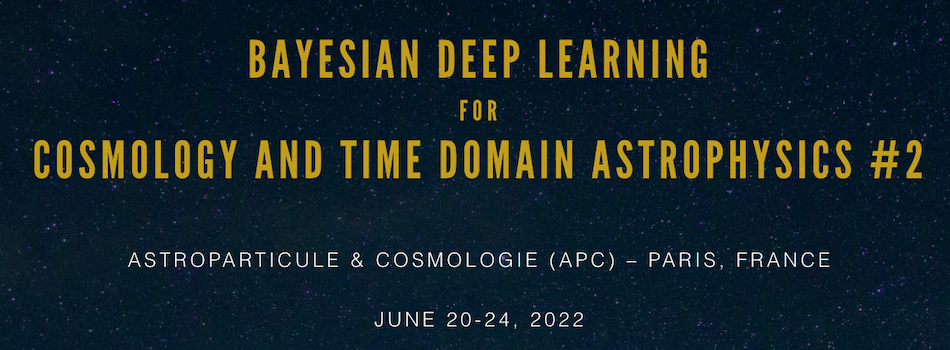Orateur
Description
Gravitational-wave population studies have become a common approach to learn about the astrophysical distribution of merging stellar-mass binary black holes. The goal is to map the source properties (e.g., masses and spins) of events observed by ground-based interferometers --which have been filtered through detection biases-- to the true parameter distributions as a whole across the population. In practice, this requires us to construct models for the population and detection biases, which feed into a hierarchical Bayesian inference to measure the properties of the population. I will present our approach to solving this problem, the key ingredient being the use of machine learning models. We employ a simulation-based approach which, when enhanced with deep neural networks, allows us to compare astrophysical models directly with gravitational-wave data while fully mapping the Bayesian posterior. Applying our deep learning population framework to the case of dynamical formation, in which components in binary black hole mergers may already be the remnants of previous mergers, we show that features in the mass and spin distributions can be explained by this repeated-merger scenario. Our approach readily applies to realistic simulations of various astrophysical formation channels.

